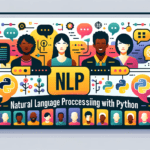Marketers continually seek innovative ways to engage and captivate consumers in the digital landscape. One such innovation that has gained significant traction is Generative Artificial Intelligence (AI), commonly known as GenAI. This powerful technology promises to revolutionize digital marketing by enabling personalized experiences, streamlining operations, and driving growth. However, its effectiveness hinges on the quality of underlying data. In this blog post, we explore the intersection of GenAI and data quality, exploring its implications for digital marketing strategies.
The Promise of GenAI in Digital Marketing
- Overview of Generative AI: Brief explanation of what it is and its potential applications in digital marketing.
- Optimism Among CMOs: Highlight findings from a survey indicating CMOs’ optimism and confidence in GenAI’s ability to enhance productivity and create competitive advantage.
The Importance of Data Quality
- Divide Between Expectations and Reality: Discuss the challenges of poor data quality, emphasizing the discrepancy between marketers’ expectations of seamless customer experiences and the reality of ineffective AI due to data fragmentation.
- Illustrative Scenarios: Provide examples contrasting experiences with poor data quality versus experiences with accurate, unified data, showcasing the impact on customer interactions and purchasing decisions.
Solving the Data Quality Problem
- Unified Customer Data Foundation: Explain the critical role of a unified customer data foundation in powering effective AI strategies.
- Challenges in Data Unification: Discuss the complexities and scale of unifying customer data, highlighting common approaches such as rules-based matching and their limitations.
- Leveraging AI for Data Unification: Introduce the concept of using AI models for data unification, emphasizing their ability to find connections between data points at scale with nuance and flexibility.
Driving Growth Through Data Quality in GenAI
- Benefits of High-Quality Data: Outline the advantages of leveraging high-quality data for generative AI in digital marketing, including standout customer experiences, operational efficiency gains, and reduced compute costs.
- Enhanced Customer Experiences: Detail how accurate, unified data enables personalized recommendations, smoother interactions, and a seamless end-to-end experience for consumers.
- Operational Efficiency: Discuss the efficiency gains for marketing teams, such as faster time to market, less manual intervention, and better ROI on campaigns, facilitated by improved data quality.
- Cost Savings: Highlight the potential cost savings associated with reduced compute costs due to better-informed AI that requires fewer API calls.
Dos and Don’ts of GenAI in Digital Marketing
- Specify Use Cases: Emphasize the importance of being explicit about the specific use cases for GenAI and specifying expected outcomes.
- Evaluate Appropriateness: Encourage marketers to carefully evaluate whether GenAI is the most appropriate tool for their use case.
- Prioritize Data Quality: Stress prioritizing data quality and establishing a unified customer data foundation for an effective AI strategy.
- Start Small: Advice against rushing to implement GenAI across all areas and recommend starting with manageable, human-in-the-loop use cases.
Conclusion
In conclusion, integrating Generative AI into digital marketing strategies holds immense potential for enhancing customer experiences, driving operational efficiency, and ultimately fueling growth. However, the realization of this potential hinges on the quality of underlying data. By prioritizing data quality and leveraging AI for data unification, marketers can unlock the full power of GenAI and create compelling, personalized experiences that resonate with consumers in the digital age. As the digital landscape continues to evolve, embracing GenAI with a strong foundation of high-quality data will be




